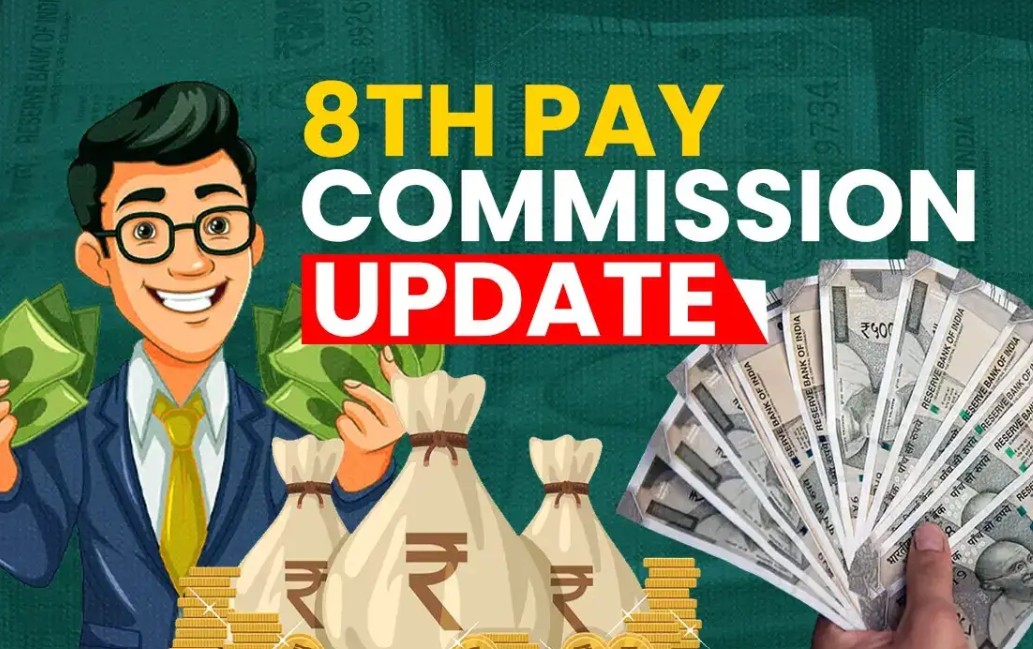8th Pay Commission: Awaiting the Salary Hike, but Delays Cast a Long Shadow
New Delhi, India – June 13, 2025 – Over 1.2 crore central government employees and pensioners across India are eagerly awaiting the recommendations of the 8th Central Pay Commission (CPC), which promises a significant revision in their salaries, pensions, and allowances. While the government officially announced its approval for the formation of the 8th Pay Commission on January 16, 2025, nearly six months later, the crucial steps of formally constituting the commission and finalizing its Terms of Reference (ToR) remain unaddressed, sparking growing concerns about potential delays in the anticipated salary hike.
The tenure of the 7th Pay Commission is set to conclude on December 31, 2025, making the timely implementation of the 8th CPC’s recommendations crucial for ensuring continuity and addressing the rising cost of living. However, the current lack of progress has led to widespread speculation that the January 1, 2026, implementation date, which was largely anticipated, may now be missed.

The Stalling Points: What’s Causing the Delay?
Several factors are contributing to the ongoing uncertainty surrounding the 8th Pay Commission:
- Non-Constitution of the Commission: Despite the government’s approval, the 8th Pay Commission has not been formally constituted. This means a chairman and other key members, who would be responsible for studying the existing pay structures and formulating recommendations, have not yet been appointed.
- Pending Terms of Reference (ToR): The ToR are the vital guidelines that define the scope, objectives, and parameters within which the Pay Commission will operate. Without these clearly defined terms, the commission cannot formally begin its extensive review process. Employee unions, including the National Council-Joint Consultative Machinery (NC-JCM), have repeatedly urged the government to finalize the ToR without further delay.
- Bureaucratic Pace: Historical precedents from previous Pay Commissions suggest a significant timeline for their operation. For instance, the 7th Pay Commission, constituted in February 2014, submitted its report in November 2015 and was implemented from January 1, 2016 – a period of nearly two years from constitution to implementation. Given that the 8th Pay Commission is yet to be constituted, the current pace of bureaucratic processes makes a January 2026 rollout highly improbable.
- Fiscal Considerations: While not explicitly stated by the government, the potential financial implications of a substantial salary revision for over a crore employees and pensioners are massive. Balancing these expenditures with the government’s fiscal targets and other welfare schemes could be a contributing factor to the cautious approach.
The Impact of Delays: Uncertainty for Employees
The prolonged wait is creating a sense of apprehension among central government employees and pensioners:
- Missed January 2026 Deadline: The most immediate concern is the likely inability to implement the revised salaries and pensions from January 1, 2026. This means employees may have to wait until late 2026, or even 2027 or 2028, for the actual financial benefits to materialize.
- Cost of Living Challenges: In an economy grappling with inflation, delays in salary revisions mean that the purchasing power of government employees continues to erode. This directly impacts their financial stability and disposable income.
- Anxiety Over Arrears: While past Pay Commissions have implemented recommendations retrospectively with the payment of arrears, the longer the delay, the larger the accumulated arrears, creating both anticipation and administrative challenges. Employee organizations are demanding clarity on whether the arrears will be paid if there is a delay.
- Impact on Dearness Allowance (DA): The Dearness Allowance, currently at 55% (effective January 2025), is revised twice a year to offset inflation. While a further DA hike is due in July 2025, the eventual merger of DA with basic pay under the 8th Pay Commission is a significant aspect of the proposed revision. Delays mean this structural change also gets pushed back.
What to Expect and Demands from Employee Unions
Despite the delays, the formation of the 8th Pay Commission is inevitable, given the decadal revision cycle. Speculations are rife regarding the potential “fitment factor,” a crucial multiplier used to calculate the revised basic pay. Experts suggest it could range from 1.92x to as high as 3.50x, which could significantly increase the minimum basic salary from the current ₹18,000 to potentially over ₹51,000.
Employee organizations are actively advocating for several key demands, including:
- Fixing the minimum wage based on a five-member household.
- Merging existing pay levels for simplification.
- Revising pension every five years.
- Restoring commuted pension after 12 years (instead of 15).
- Merging 50% of the Dearness Allowance with basic pay.
The government is currently inviting suggestions from various ministries and departments, a step towards finalizing the ToR. However, until the commission is formally constituted and its mandate is clearly defined, the over 1.2 crore central government employees and pensioners will continue to navigate a period of uncertainty, eagerly awaiting the comprehensive salary hike that promises to improve their financial well-being. The coming months will be crucial in determining the pace and eventual implementation of the 8th Pay Commission’s recommendations.

